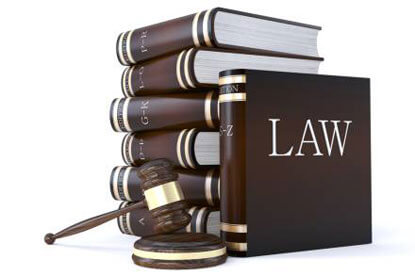Summary: Apple is fighting back against the FBI, which wants it to create an operating system to hack into the San Bernardino shooter’s password-protected iPhone.
The legal battle between Apple and the FBI raises the age old question: what’s more important—individual privacy or national security?

Syed Rizwan Farook and Tashfeen Malik. Photo courtesy of LA Times.
The FBI vs. Apple
On Tuesday, U.S. Magistrate Sheri Pym ordered Apple to help the FBI break into the iPhone of alleged San Bernardino shooter Syed Farook, CNN reports. Syed and his wife Tashfeen Malik were deemed radical Islamists who supported ISIS, and after they allegedly killed 14 people, they died in a police shootout.
Investigators were given permission to search Farook’s phone but were unable to access the data because it was locked by a passcode. Because Apple’s security system permanently erases data after 10 failed passcode attempts, the government wants Apple’s help in breaking into the phone. Even with the court order, Apple says no way.
“The government is asking Apple to hack our own users and undermine decades of security advancements that protect our customers – including tens of millions of American citizens – from sophisticated hackers and cybercriminals,” Apple CEO Tim Cook wrote in an open letter. “No reasonable person would find that acceptable.”
While Apple wants to protect its customers, the investigators of the San Bernardino shooting want to provide answers for the victims and their families.
“We have made a solemn commitment to the victims and their families that we will leave no stone unturned as we gather as much information and evidence as possible. These victims and families deserve nothing less,” Eileen Decker, a California U.S. attorney, said in a statement.
The Justice Department stressed that they only want access to Farook’s phone, and they are not ordering Apple to create a “backdoor” that would allow them access to all iPhones. However, Apple said the FBI wants them to create a new operating system that would allow them to bypass the security features on the iPhone. Cook warned that in the wrong hands, the nonexistent software could have the potential to unlock other phones.
The Legal Implications
Fortune broke down the legal implications of this case. “It’s different than forcing a phone company to place a wiretap or making an Internet company hand over emails,” Fortune writes. “Also note the Justice Department isn’t fighting over just this iPhone. Law enforcement agencies across the country are being thwarted by Apple’s encrypted devices, and the FBI likely chose this case—which involves an infamous terrorist—as its best chance to force Apple to change course.”
According to Fortune, the FBI is using a 1789 law called the “All Writs Act” to force Apple to comply. However, attorney Alexander Abdo of the ACLU said that Apple can probably fight the act.
“The All Writs Act doesn’t allow government to conscript a company into service if the company doesn’t have the information … If the FBI is doing an investigation, it can’t force the local locksmith to help it break into a house,” Abdo said.
Furthermore, Fortune concludes that the Justice Department can’t make Apple comply if doing so violates their Constitutional rights such as the First, Fourth or Fifth Amendment. However, it did note that the Justice Department has prevailed in other cases involving passwords using the All Writs Act.
What Does the Public Think?
USA Today conducted a poll that asked, “Should Apple fight a court order to break into the San Bernardino shooter’s iPhone?” Over 4,500 readers responded, and 55% said yes while 36% said no. The publication reported that after Edward Snowden blew the whistle at the extent of government spying, tech companies such as Facebook, Apple, and Twitter have publicly stated that they would not create backdoors anymore.
Should Apple fight a court order to break into the San Bernardino shooter’s iPhone? https://t.co/ZYyhqO10uH
— USA TODAY Tech (@usatodaytech) February 17, 2016
What’s Next?
In the next few days, Apple will submit a legal brief for a California magistrate judge to rule on, Fortune reports. Then the appeals process will begin.
Source: CNN
Source: Fortune
Source: USA Today

















































